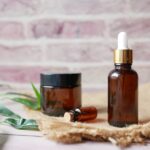The scalp is often overlooked when it comes to hair care, but it is actually the foundation of healthy hair. A healthy scalp promotes hair growth and prevents hair loss. It is also an indicator of overall health. When your scalp is in good condition, your hair will be stronger, shinier, and more vibrant.
Understanding Your Scalp: Common Scalp Issues and Their Causes
There are several common scalp issues that can affect the health of your hair. Dandruff is a common condition characterized by flaking and itching of the scalp. It is often caused by an overgrowth of yeast on the scalp. Scalp psoriasis is a chronic autoimmune condition that causes red, scaly patches on the scalp. Seborrheic dermatitis is a common skin condition that causes redness, itching, and flaking of the scalp. Scalp eczema is another common skin condition that causes dry, itchy patches on the scalp. Folliculitis is an infection of the hair follicles that can cause redness, swelling, and pustules on the scalp.
Signs of a Healthy Scalp: How to Know if Your Scalp is in Good Condition
There are several signs that indicate a healthy scalp. First, there should be no flakes or itching on the scalp. If you notice any dandruff or itchiness, it may be a sign of an underlying scalp issue. Second, there should be no redness or inflammation on the scalp. Redness and inflammation can indicate an infection or irritation of the scalp. Third, there should be no excessive oiliness or dryness on the scalp. The scalp should have a balanced level of oil production to keep it moisturized without being greasy or dry. Finally, healthy hair is shiny and strong. If your hair looks dull and weak, it may be a sign that your scalp is not in good condition.
The Role of Diet in Maintaining a Healthy Scalp: Foods to Eat and Avoid
Diet plays a crucial role in maintaining a healthy scalp. Certain foods can promote scalp health, while others can cause scalp issues. Foods that promote scalp health include fruits and vegetables rich in vitamins and antioxidants, such as berries, leafy greens, and citrus fruits. Omega-3 fatty acids found in fatty fish, flaxseeds, and walnuts can also help maintain a healthy scalp. On the other hand, foods that can cause scalp issues include processed foods high in sugar and unhealthy fats. These foods can contribute to inflammation and imbalances in the body, which can affect the health of the scalp.
Daily Scalp Care Routine: Steps to Follow for a Healthy Scalp
Having a daily scalp care routine is essential for maintaining a healthy scalp. The first step is brushing and combing your hair to stimulate blood flow to the scalp and distribute natural oils. It is important to use a brush or comb with wide teeth to avoid damaging the hair and scalp. The next step is washing and conditioning your hair with products that are suitable for your scalp type. It is important to choose gentle, sulfate-free shampoos and conditioners that do not strip the scalp of its natural oils. After washing, it is important to dry and style your hair gently to avoid causing damage to the scalp.
Choosing the Right Shampoo and Conditioner: Ingredients to Look for and Avoid
When choosing a shampoo and conditioner, it is important to look for ingredients that promote scalp health. Some beneficial ingredients include tea tree oil, which has antimicrobial properties that can help treat dandruff and other scalp issues. Aloe vera is another beneficial ingredient that can soothe and moisturize the scalp. On the other hand, it is important to avoid ingredients that can cause scalp issues, such as sulfates, which can strip the scalp of its natural oils and cause dryness and irritation. It is also important to avoid silicones, which can build up on the scalp and clog hair follicles.
Scalp Massage Techniques: Benefits and How to Do It Properly
Scalp massage is a beneficial technique that can improve scalp health. It helps stimulate blood flow to the scalp, which promotes hair growth and nourishes the hair follicles. Scalp massage can also help relax the muscles in the scalp and relieve tension and stress. To do a scalp massage properly, start by using your fingertips to gently massage the scalp in circular motions. Apply gentle pressure and move from the front of the scalp to the back. You can also use a scalp massager or a brush with soft bristles to enhance the massage.
Natural Remedies for a Healthy Scalp: DIY Treatments and Home Remedies
There are several natural remedies that can help maintain a healthy scalp. Tea tree oil is a popular remedy for dandruff and other scalp issues due to its antimicrobial properties. It can be diluted with a carrier oil, such as coconut oil, and applied to the scalp. Apple cider vinegar is another natural remedy that can help balance the pH of the scalp and reduce dandruff. It can be mixed with water and used as a rinse after shampooing. Aloe vera gel can soothe and moisturize the scalp, reducing inflammation and itching. Coconut oil is another beneficial remedy that can moisturize the scalp and prevent dryness.
Professional Scalp Treatments: When to Seek Help from a Dermatologist or Trichologist
If home remedies do not improve your scalp condition, it may be time to seek help from a dermatologist or trichologist. These professionals specialize in diagnosing and treating scalp issues. They can perform a thorough examination of your scalp and recommend appropriate treatments. Some professional scalp treatments include medicated shampoos, topical creams, and light therapy. These treatments can help address underlying scalp issues and promote a healthy scalp.
Lifestyle Habits That Can Affect Your Scalp Health: How to Make Positive Changes
Certain lifestyle habits can affect the health of your scalp. Stress management is important, as stress can contribute to scalp issues such as dandruff and hair loss. Engaging in regular exercise can also improve scalp health by promoting blood flow to the scalp. Getting enough sleep is crucial for overall health, including the health of your scalp. Lack of sleep can contribute to inflammation and imbalances in the body, which can affect the health of the scalp. Finally, staying hydrated is important for maintaining a healthy scalp. Drinking enough water helps flush out toxins and keeps the scalp moisturized.
Maintaining a Healthy Scalp for Beautiful, Strong Hair and Overall Well-being
A healthy scalp is essential for healthy hair and overall health. By following a daily scalp care routine, choosing the right products, and making positive lifestyle changes, you can maintain a healthy scalp and beautiful, strong hair. It is important to pay attention to any signs of scalp issues and seek professional help if home remedies do not improve your condition. Remember that a healthy scalp not only promotes hair growth but also indicates overall well-being. Take care of your scalp, and your hair will thank you.



